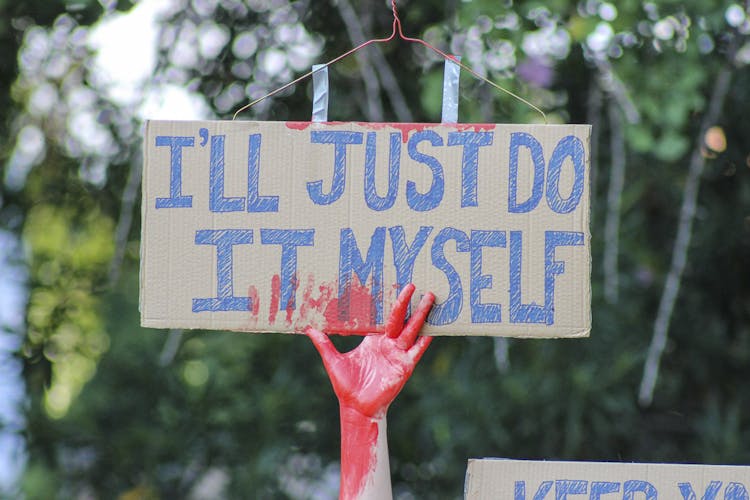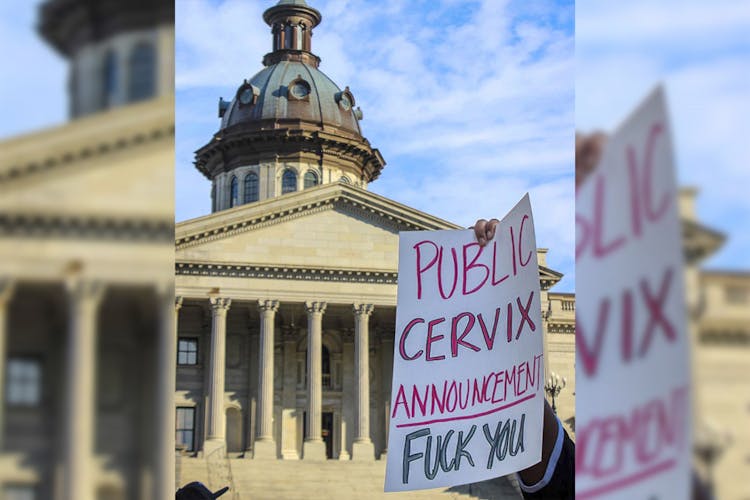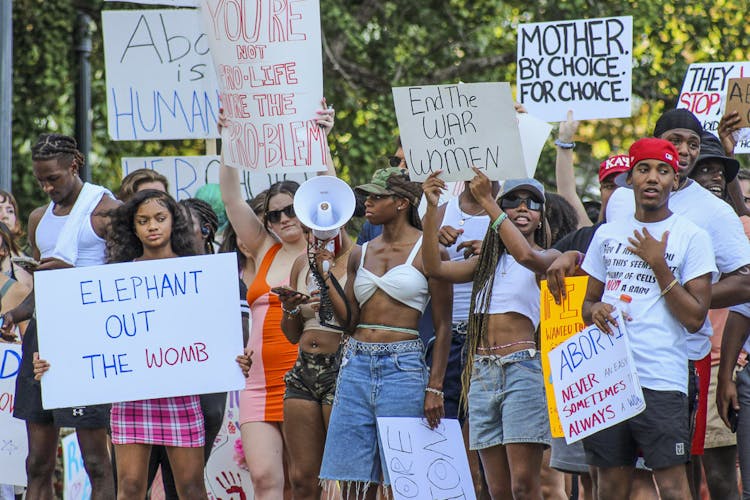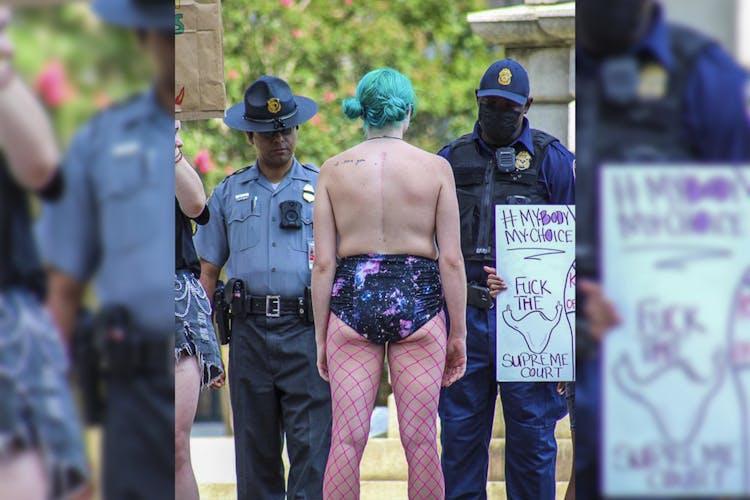Femicide is defined as the deliberate killing of a woman or girl, in particular by a man, and on account of her gender.
There doesn’t seem to be a better fitting definition to explain why South Carolina legislators want to introduce a bill that subjects women who receive an abortion to the death penalty. In fact, it seems like there's no other reason why a predominantly male government is so determined to punish, imprison, shame and even execute women for undergoing a medical procedure other than pure misogyny.
Even though the South Carolina Supreme Court declared the S.C. Senate’s attempt at an abortion ban unconstitutional, that hasn’t stopped the state legislature from coming up with new, similar bills. In fact, the state House of Representatives just passed another near-total abortion ban in February.
The "Fetal Heartbeat Act," which banned abortions after only six weeks with minimal exceptions for the mother's life and victims of rape or incest, was signed into law by Gov. Henry McMaster in 2021, but it was quickly blocked by the U.S. Court of Appeals for the Fourth Circuit.
The ban was lifted briefly after the overturning of Roe V. Wade in 2022 but was then found unconstitutional in January 2023.
Todd Rutherford, the Democratic minority leader of the South Carolina House of Representatives, said that the South Carolina Supreme Court found the Fetal Heartbeat Act unconstitutional because women have a right to privacy.
"They’re trying to say that a fetus is a person at conception," Rutherford said. "They base it on no science, just an overriding desire to tell women how to deal with their own bodies."
But that isn’t the only angle for this bill. If a fetus is legally declared a person at conception, it is possible that having an abortion could be considered murder, which is punishable by the death penalty in South Carolina. It is ironic that conservative lawmakers and their supporters hold the mantra of being “pro-life” while trying to subject women to death for undergoing a medical procedure.
“It is sick, it is misogynistic, and unless people get out and vote, they can expect more of the same,” Rutherford said.

H. 3549, the South Carolina Prenatal Protection Act aims to apply the laws for victims of homicide or assault to an unborn fetus. This means that a woman who receives an abortion could receive up to life in prison and possibly even the death penalty.
These bills not only go against the U.S. Constitution but the South Carolina Constitution as well. Article I, Section 10 of the state's constitution grants “the right of the people to be secure in their persons,” and that “unreasonable invasions of privacy shall not be violated.”
It seems like abortion bans in any state violate the promise of protection of individual liberty, health and safety. Where will the government draw the line on just how much they can control? Do “separation of church and state” or "freedom of religion" no longer have merit in the Constitution? The U.S. was founded under the very problem of a lack of religious freedoms and a controlling government.
And lawmakers likely won't stop at criminalizing abortions. Bills like H. 3549 are also dangerous for women because they impede on their basic right to privacy with their healthcare providers. Critics of the bill believe that these types of laws will not only prosecute women who choose to have an abortion, but people who have miscarriages as well.
If South Carolina lawmakers truly cared about saving lives, then they would be more concerned about foster care youth, gun safety and the death penalty. But the truth is that the "pro-life" viewpoint has never been about life at all, just disdain at the thought that women are capable of making decisions about what is best for their own body. Women have more of a purpose in life than being mothers and housewives.
This bill could incite the killing of countless women if they refuse to give up control of their bodies and independence. If lawmakers think that women in South Carolina will sit back and take this abuse, then they are in for a rude awakening.




